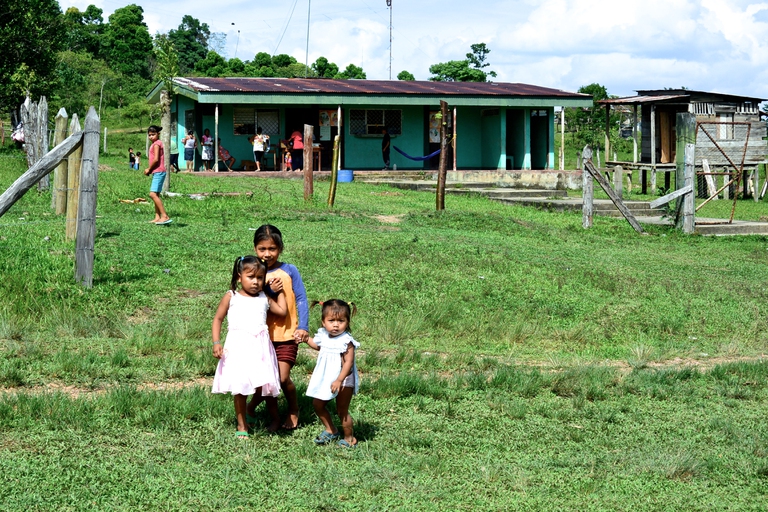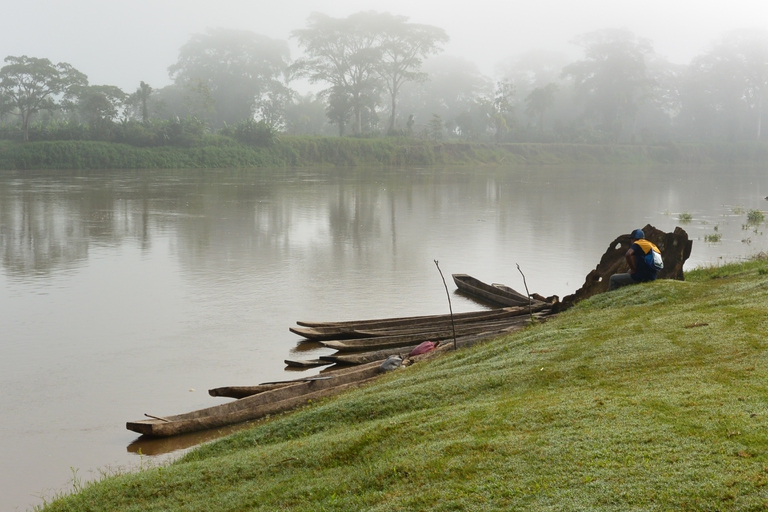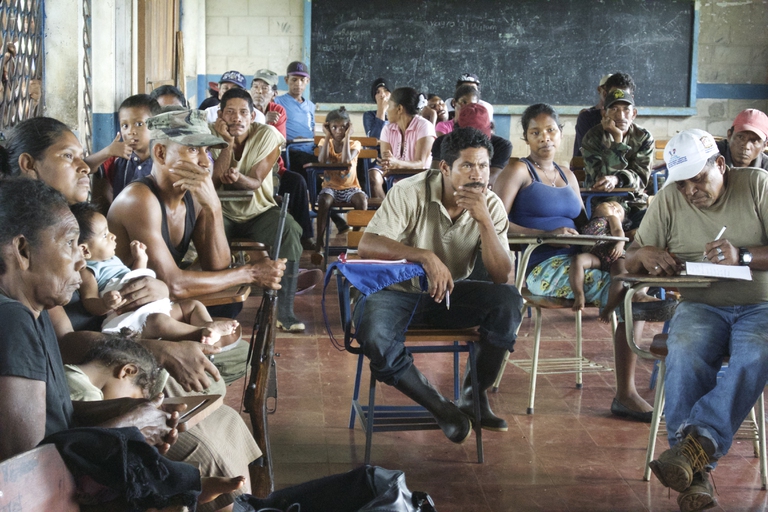
A special report from the Yuqui territory delves deep into the dreams, challenges, joys and sadness of one of Bolivia’s most vulnerable indigenous groups.
The case of Awas Tingni, a small indigenous Mayangna community in Nicaragua, made history. This year the community celebrates fifteen years since it won the case in Inter-American Court of Human Rights (I-A Court), which ruled that the government should given them entitlement over their ancestral lands – also in order to protect them from exploitation at the
The case of Awas Tingni, a small indigenous Mayangna community in Nicaragua, made history. This year the community celebrates fifteen years since it won the case in Inter-American Court of Human Rights (I-A Court), which ruled that the government should given them entitlement over their ancestral lands – also in order to protect them from exploitation at the hands of logging companies. Although their voice was heard, the community still faces huge challenges today. The state hasn’t complied with the promises made, and the livelihood of Nicaragua’s indigenous people is more threatened than ever.
The origin of the case dates back to the 1990s, when the government of Nicaragua went behind Awas Tingni’s back, granting concessions to logging companies such as Nicaraguan company Madensa, without consulting the community or seeking its consent. After intervention by the WWF and human rights lawyer James Anaya, the illegal concession was stopped. In 1994 the government signed an agreement that would guarantee indigenous participation (including economic benefits) in the logging project. However, in the shadow of this, it was involved in discussions to grant a logging license to Korean company Solcarsa. After Awas Tingni lawyers realised that the government’s commitment to the indigenous cause was illusory, they decided to internationalise the case.
A petition was filed and the case was led by Anaya. After many years, in August 2001 the I-A Court pronounced its verdict, saying that the state had violated several articles of the American Convention on Human Rights, most importantly, Article 21 on property rights. It also recognised that in indigenous culture “relations to the land aren’t merely a matter of possession and production but a material and spiritual element which they must fully enjoy”. The Court ordered the state to demarcate and give indigenous inhabitants entitlement to Awas Tingni lands within 15 months.
Human rights advocates, government officials and World Bank technocrats undertook a long and arduous task aimed at demarcating all indigenous and Afro-descendant territories, not only Awas Tingni ones. In consultation with indigenous and Afro-descendant peoples, they forged a new understanding of property that would correspond to the cosmovision of costeños (coastal people). The fruit of this process was the Law of Communal Property Regime, Law 445 that went into effect in 2003. “Most territories managed to get the formal title; but saneamiento – effective title security – has been highly unsuccessful so far,” Doctor Lottie Cunningham, president of NGO Cejudhcan and who participated in the Awas Tingni trial as an expert witness, explains.
The law prohibits the sale of land but many, including politicians, government officials and even indigenous people themselves, got involved in the illegal sale of land. This has led to overlapping titles and corruption, and has been exploited by outsiders, derogatorily called colonos, who see a unique economic opportunity. These resort to all sorts of violence to get access to land: including kidnappings, rape and burning crops. Between September 2015 and June 2016 28 people were killed according to NGO estimates, and over 3,800 people are currently refugees, mostly in Honduras.
In Awas Tingni, where 150 Mayangna families live, there are currently more than 800 families of outsiders, occupying over 90 per cent of the land the indigenous inhabitants legally possess. The land has a special meaning in this community. “The conservation of land is necessary to keep the spirit of our ancestors alive,” according to Elizabeth Salómon, native of Awas Tingni and lecturer at local university Uraccan.
“If you harm my hand, I will bleed, and eventually my well-being will deteriorate. The same happens with nature,” in the words of community leader Levy Maclean. Mayangna land lies in the middle of a pine forest and is home to numerous species vital to the cultural survival of its native inhabitants, such as tigers, deer, peacocks and squirrels. Hunting, fishing and collection of plants are important activities that determine the Mayangna way of life. The culture is a natural system protecting balance in nature, or, as we would say today, sustainability. Notwithstanding the threats and challenges this community faces, Maclean emphasises, “we’re not against anyone. We’re peaceful, and that’s the only thing we expect from the state to give us: peace”.
Siamo anche su WhatsApp. Segui il canale ufficiale LifeGate per restare aggiornata, aggiornato sulle ultime notizie e sulle nostre attività.
![]()
Quest'opera è distribuita con Licenza Creative Commons Attribuzione - Non commerciale - Non opere derivate 4.0 Internazionale.
A special report from the Yuqui territory delves deep into the dreams, challenges, joys and sadness of one of Bolivia’s most vulnerable indigenous groups.
The Yuqui people of the Bolivian Amazon fight not only to survive in the face of settlers, logging and Covid-19, but to preserve their culture and identity.
Jair Bolsonaro is accused of crimes against humanity for persecuting indigenous Brazilians and destroying the Amazon. We speak to William Bourdon and Charly Salkazanov, the lawyers bringing the case before the ICC.
Activists hail the decision not to hold the 2023 World Anthropology Congress at a controversial Indian school for tribal children as originally planned.
Autumn Peltier is a water defender who began her fight for indigenous Canadians’ right to clean drinking water when she was only eight years old.
The pandemic threatens some of the world’s most endangered indigenous peoples, such as the Great Andamanese of the Andaman and Nicobar Islands in India.
The Upopoy National Ainu Museum has finally opened. With it the indigenous people of Hokkaido are gaining recognition but not access to fundamental rights.
A video shows the violent arrest of indigenous Chief Allan Adam, who was beaten by two Royal Canadian Mounted Police (RCMP) officers.









